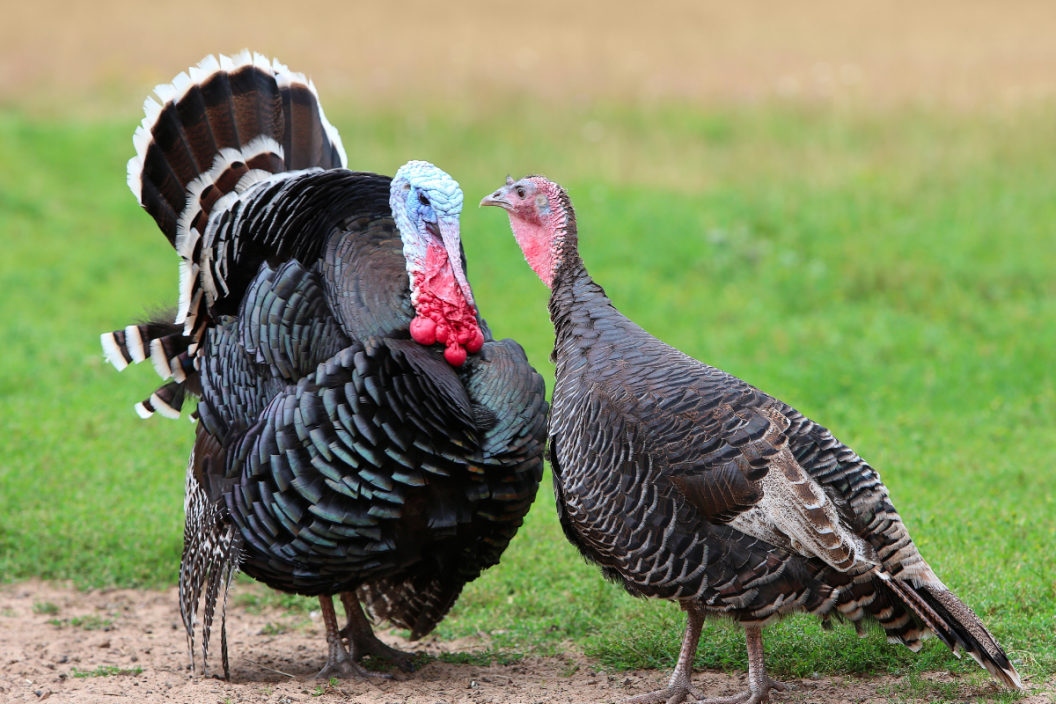Americans eat about 95 million dozen chicken eggs per year, but why don't we eat turkey eggs?
Now that Thanksgiving is around the corner (Hooray!), we've been kind of obsessed with all things turkey. Which ultimately got us thinking, do turkeys lay eggs like chickens do? And if so, why don't we eat turkey eggs?
Here is everything you need to know about eggs from the native North American gamebird.
Does a Turkey Lay Eggs?
https://www.instagram.com/p/CBTAHZpA_mL/
As the heading of this article would indicate, the answer is yes - turkeys, like your common chickens, are capable of egg production. We really love eggs, chicken eggs that is: it is reported that an average person in the United States consumes almost 300 chicken eggs a year. (Oh that's a lot of yolks, folks!) Indeed, whether it's fried, poached, hard-boiled, or my personal favorite, soft-boiled, we just can't seem to get enough of the trusty chicken egg.
But now that we know turkeys have some egg-laying skills too, why don't we ever eat turkey eggs?
The Reasons Why We Don't Eat Turkey Eggs
https://www.instagram.com/p/B8Um31-AATQ/
Yes, turkey eggs are indeed edible - as some turkey farmers will tell you, they taste actually quite similar to the chicken egg. In fact, turkey eggs used to be a staple on menus across North America and Europe back in the 16th century where people would boil or simmer them. So why can't we find turkey eggs in the grocery stores these days?
1. It boils down to simple economics: turkey eggs are expensive. That's because a clutch of eggs from a turkey are way harder to produce than chicken eggs. A dozen chicken eggs cost about $2 while turkeys eggs are usually sold for about $2 to $3 per egg.
2. Another reason is production rate: a backyard chicken lays about 300 eggs per year compared to a turkey hen that lays about 100 eggs per year. Female turkeys lay eggs much less frequently; chickens lay about one egg per day and turkey hens lays about two eggs per WEEK. Yeah... there's no contest there.
3. Not only do both wild turkeys and domestic turkeys produce less eggs, they take longer to mature and begin laying eggs - about 13 weeks more; turkeys require 32 weeks while chickens only need 19 to 20 weeks.
"Turkeys have a longer life cycle so they need to get to about 7 months before they are able to produce laying eggs," stated Kimmon Williams from the National Turkey Federation.
4. Turkey eggs are also higher in fat and cholesterol (because of their way bigger size), and thus not as good for your health. It also comes down to the physical attributes: the egg shells of turkey eggs are much thicker than that of a chicken egg, so it's much more difficult to crack open. This also means a thicker and tougher shell membrane, thus making them much more difficult to eat.
A Couple of Facts on Turkey Eggs Hatching
https://www.instagram.com/p/CAu8Jy4ABxq/
? Wild turkeys mate at the end of April, and do all their egg incubating in May. Female turkeys will then have their young poults (aka young turkeys) in June.
? Sounds harsh but the truth is male turkeys provide absolutely no care for their poults. Baby turkeys follow the female turkeys, who care for them for a few days until the young poults can find food on their own.
Have you ever tried a turkey egg? Please tell us in the comments!
This article was originally published November 6, 2020. It was updated to reflect editorial corrections on the time frame for when turkeys and chickens begin laying eggs.




